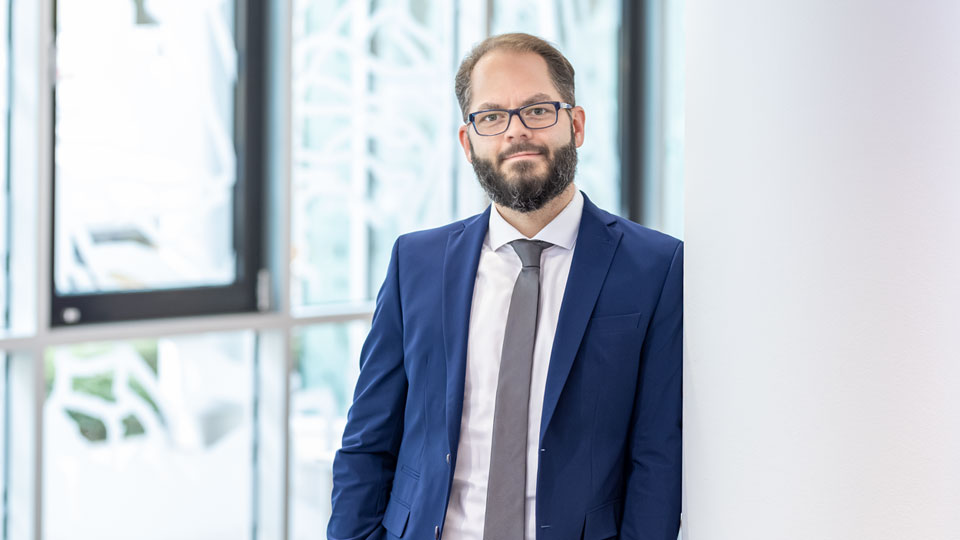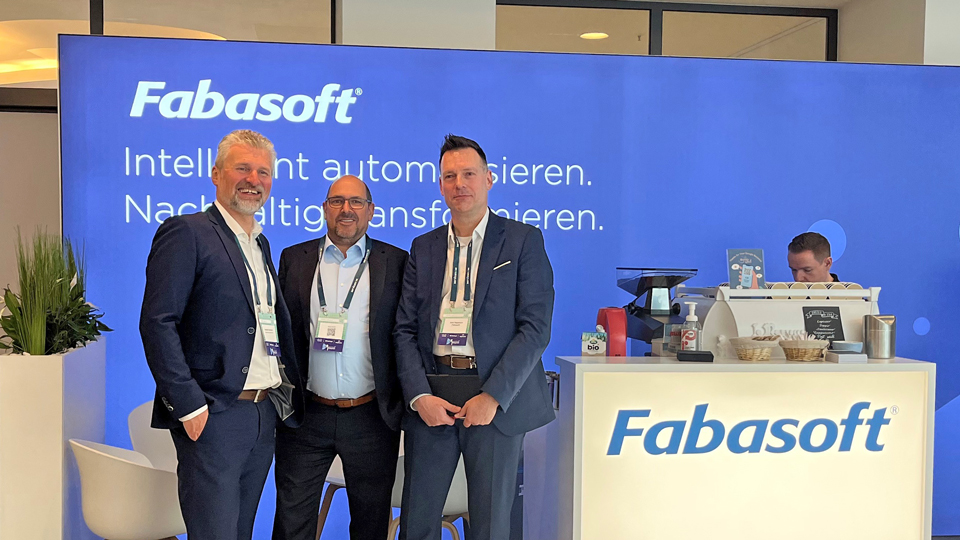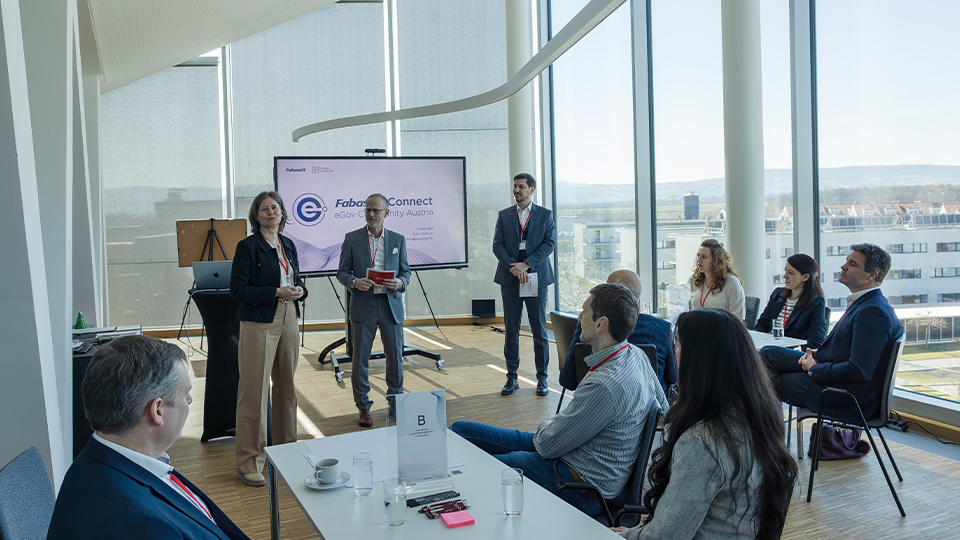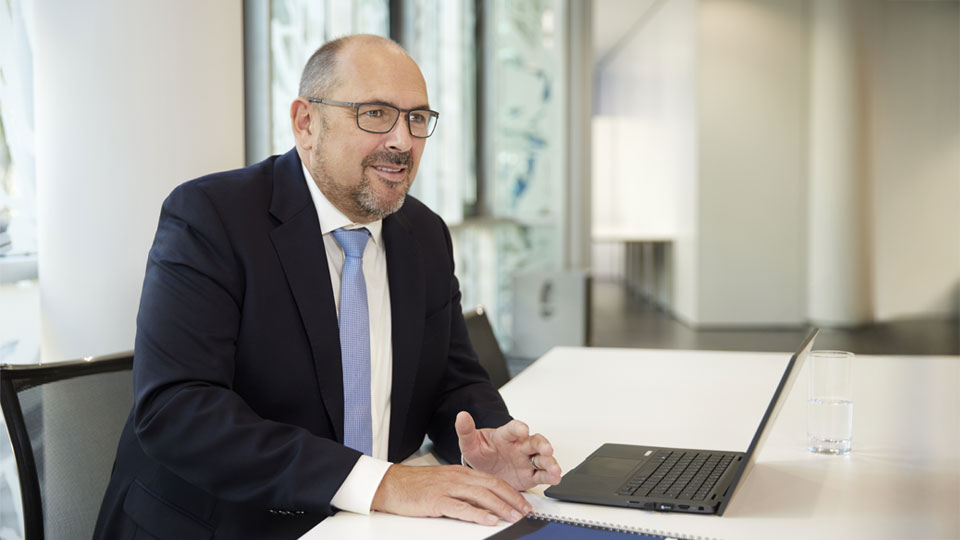"Fabasoft recognizes its responsibility towards its stakeholders to operate sustainably over the long term" through ecological, social and sustainable business practices (ESG criteria). With this statement on its website and through active engagement – including the Science Based Targets initiative (SBTi) and various national and European studies and projects – Fabasoft underlines its long-standing commitment in this area. In this interview, Björn Fanta, Head of Research at Fabasoft, explains how digitization contributes to sustainability, why it is a matter of course for Fabasoft to regularly participate in sustainable research projects, and how these are incorporated into the products and services and consequently the entire Fabasoft Group.
Björn, sustainability plays a significant role at Fabasoft, one of Europe's leading software product companies and cloud service providers. How do digitization or digital transformation and sustainability relate to each other?
Björn Fanta: Digitization and digital transformation can help to promote and to support sustainability in a number of ways. Examples include:
- Virtual collaboration: Digital communication and collaboration via online meetings and tools connect teams from different parts of the world, reducing physical travel and emissions.
- Efficient resource use: The use of digital technologies or systems for resource management, such as meaningful value stream mapping, helps to optimize energy consumption and to reduce CO2 emissions.
- Effective circular economy: Digital technologies promote the circular economy by improving "tracking" of materials or products, enabling more effective reuse and recycling, among other things.
However, there are also challenges associated with increasing digitization. For example, digital technologies can have higher energy consumption, especially when used inefficiently. Think of "proof of work" approaches, i.e., cross-network consensus for data storage in the blockchain, or the immense need for processing power for AI models such as ChatGPT.
All in all, digital transformation is an important prerequisite for sustainability. On the one hand, this requires consideration in the context of the defined sustainability goals. On the other hand, maximum benefits for the stakeholders must be ensured so that digitization actually functions as an "enabler" for resource efficiency, conservation and optimization.
Speaking of digitization as an "enabler" for resource efficiency, how does Fabasoft utilize its expertise and know-how in this area?
Björn Fanta: Research can make a very specific contribution to resource efficiency – in conjunction with digitization, above all through appropriate know-how. And this is what Fabasoft brings to numerous projects: We understand digital business processes, the correct connection, preparation as well as linking of data – and ensure that data becomes information. Information that people understand and that helps them make decisions regarding resource efficiency, waste avoidance or recycling. The human being has always been and will remain the most important thing, and the digital systems provide support – keyword "human-in-the-loop". For this reason, we deliberately rely on experts from the field of UI/UX for research projects.
With regard to the challenges mentioned – including the increased energy requirements of "intelligent" systems – there is also a clear responsibility: digitization with all its facets (cloud computing, software as a service, machine learning, etc.) must focus equally on optimization potential and energy efficiency, and answer the question: "What effort is opposed to potential savings?" Therefore it is our responsibility to participate in sustainable research projects.
In which projects with a focus on sustainability has Fabasoft been or is Fabasoft involved?
Björn Fanta: For example, there are the two Austrian flagship projects "ZERO³" and "Kiramet". In each case, a renowned consortium from research and industry is working on issues relating to the production of the future (Zero³) and artificial intelligence for recycling (Kiramet). Zero³ addresses three pillars: Zero Waste, Zero Data Gap and Zero Human Potential Loss. Kiramet is investigating machine learning approaches to significantly improve the effectiveness of current steel recycling processes and make this available across systems in the circular economy by integrating so-called digital product passports.
At European level, I have been working with my team on the topic of "Resource Efficiency and Climate Positivity" in the European Commission's Alliance for Industrial Data, Edge and Cloud since the beginning of 2022. This spring, the first roadmap with concrete strategy proposals will be handed over to the Commission.
How are the scientific findings from these national and European projects incorporated into the Fabasoft product portfolio, and what are the benefits?
Björn Fanta: There are various ways of implementing scientific findings in a product portfolio. Generally, research results are incorporated into an innovation process from idea generation through development to market launch. This applies to new products or services as well as to the improvement of existing ones.
In the case of the projects mentioned, we are very much aiming to expand the functionality and maximize the interoperability of our software services. If, for example, a digital product passport becomes established at the European level, Fabasoft can take up this standard directly, implement it, and offer it to the industry as an integrated solution.
Final question, Björn: What motivates you and your team to represent Fabasoft in research projects and to shape the digital world more sustainably in collaboration with software developers?
Björn Fanta: Clearly, the opportunity to actually make a difference. Technological insights and innovation impulses are usually the main driver for research. But Fabasoft also sees both the need to drive digitization with sustainability in mind, and the benefits this will bring for our environment and our society. Of course, such interests go through multi-layered processes, but in the long run it makes sense to pay attention to the appropriate design of our European strategies at the same time as we take advantage of all the opportunities offered by technology. And Fabasoft contributes significantly to this.




